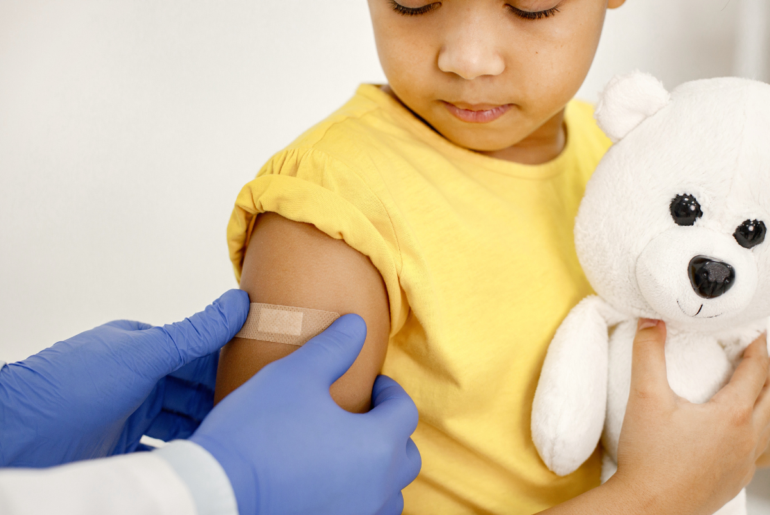As misinformation and disinformation has become more prevalent online in recent years, it’s more likely than ever that friends or relatives may hold incorrect or even harmful beliefs about vaccines. Despite widespread false claims connecting vaccines with autism spectrum disorder, the fact is that vaccines do not cause autism.
What is the connection between the increase in autism rates and vaccines?
While it’s true that the rate of autism diagnoses in kids has increased in recent decades, it’s not necessarily because kids are more likely to have autism. The primary reason for the increase in diagnoses is that healthcare providers have gotten much better at identifying autism in recent years. With increased understanding, the definition of autism has also expanded significantly into a spectrum that includes people with a wide range of characteristics—from those with subtle social differences to individuals with more complex support needs.
Vaccines are in no way connected to the increase in autism diagnoses. As with any medication, it’s possible to have an allergic reaction, or mild, temporary side effects. However, the benefits of immunizations greatly outweigh the side effects. Immunizations don’t only protect the person who is vaccinated from potentially deadly illnesses—they also contribute to higher immunity rates in the general population which protects those who are unable to receive some vaccines, like pregnant people, infants, and immunocompromised people.
How to respond to misinformation about vaccines and autism
If a friend or relative shares misinformation about vaccines and autism, or judges your choice to vaccinate your child because of incorrect beliefs about vaccines and autism, here are three ways to respond that are rooted in empathy and backed by facts—
- “Did you know the research that claimed vaccines cause autism was proven to be fraudulent, and it was fully retracted?”
The original study claiming that measles, mumps, and rubella vaccines cause autism was fully retracted after being proven fraudulent. The author had financial conflicts of interest, having been funded by lawyers suing vaccine manufacturers and was pursuing a patent for a rival vaccine. The author’s medical license was revoked due to falsified information and data manipulation. - “It might seem like more people are getting diagnosed, but we’ve just broadened the definition of autism and gotten better at screening for it.”
Many people don’t realize autism wasn’t always thought of as a spectrum—and understanding that the definition was broadened to include people who are socially awkward or quirky all the way to non-verbal individuals can help clarify why more people are getting diagnosed. - “It’s actually really hurtful to talk about autism as if it would be just as devastating as measles or mumps.”
Autism is a neurological difference, not a deadly disease. Comparing autism to potentially fatal illnesses like measles can be deeply hurtful to people with autism and their families. Help offer some perspective—avoiding vaccines puts kids at risk of contracting dangerous, deadly diseases, out of an (unfounded) fear a child might have social differences.
Remember that misinformation is everywhere and can be very difficult to separate from the truth—especially on social media. These conversations can be challenging, but approaching them with compassion and hard facts can help everyone make informed decisions to protect their families.







